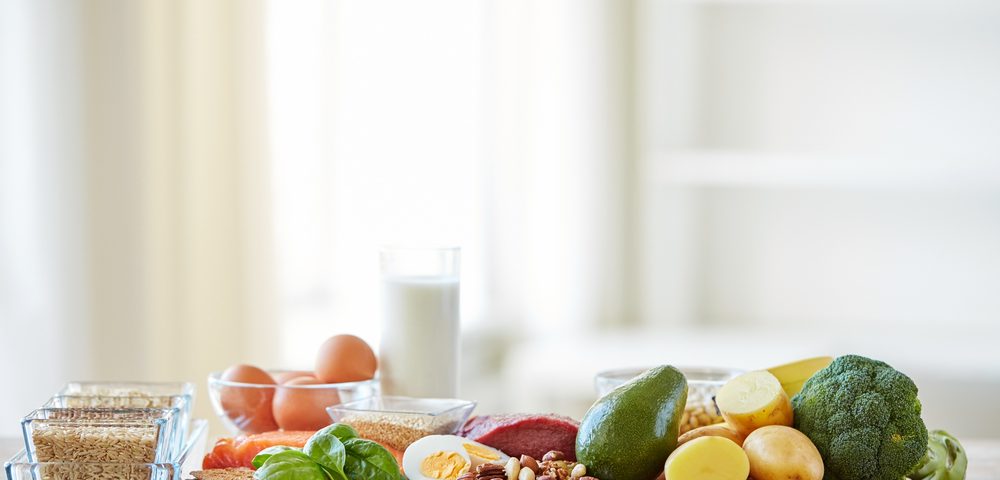Bronchiectasis is a respiratory disease that affects nutritional status and quality of life. Being underweight and malnourished, due to increased energy and protein needs, as well as obesity, are important to address for these patients.
Poor nutritional status can influence immunity, lung function, and strength, while overweight individuals may develop other conditions such as diabetes and heart disease secondary to decreased mobility.
A major factor for quality of life is maintaining a weight within normal limits for height and age. Weight status is important for lung function and optimization of nutrient absorption from food. Being overweight means your body has to work harder to supply oxygen and transport nutrients.
Malnutrition and being underweight can leave room for infections to develop and for muscle wasting; and adequate muscle mass is key for efficient breathing.
Here are some of my nutritional considerations for bronchiectasis patients:
- Include probiotic foods in the diet to help rebalance the gut bacteria after antibiotic treatment. The best probiotic foods are brined, fermented, aged cheeses, yogurt, kefir, miso, and sauerkraut.
- Include a serving of high-quality protein twice a day. Examples include meat, fish, nuts and seeds, poultry, legumes, and cheese.
- Starchy high-fiber grains and vegetables should be included at each meal. These foods provide essential energy and enzymes as well as fiber for gastrointestinal integrity.
- Good quality fats can be included daily. Sources include olive and vegetable oil, butter, nuts, nut butters, and seeds.
- Overweight individuals should monitor portion size and meal frequency; however, it is important to make sure there is a balance of carbohydrates, proteins, and fats in every meal.
- Underweight individuals should increase the nutrient density of foods and consume foods that are higher in fat and protein. Eating smaller meals every two to three hours and adding nuts and olive oil to salads and vegetables can assist in providing additional nutrition with a decreased appetite. Aim to eat five to six times per day. Soups and supplement smoothies are great options that provide a lot of energy with more limited volume.
- Bone mineral density has been shown to be decreased in bronchiectasis as inflammation is increased. Vitamin D3 and calcium supplementation as a therapeutic option is recommended under medical supervision. Patients with bronchiectasis are frequently deficient in vitamin D, correlating to a decrease in lung function, according to a 2019 article.
- Fluid intake is essential. Lung secretions are thick and viscous, increasing the risk for infection and dehydration. Drinking half your body weight in ounces of water per day can help thin out the mucus, and make the secretions in the lungs easier to expectorate.
- Consider removing dairy from the diet as that can increase phlegm in the system.
- Include a moderate amount of spices in the diet. I suggest mint, cinnamon, nutmeg and ginger. These spices help to warm the body, clear congestion, and free up energy.
A healthy and balanced diet and lifestyle are important for the lungs to function properly. Supplemental nutrition through shakes or enteral nutrition may be indicated if body weight and muscle mass decrease below normal limits. Be sure to maintain an ongoing relationship with a medical professional and dietitian to keep an eye on all the important nutritional markers.
***
 Alana Kessler, MS, RD, CDN, E-RYT, is a registered dietitian, nutritionist, weight management expert, and an accredited member of the CDR (Commission on Dietetic Registration) and the American Dietetic Association. She is also a yoga and meditation teacher, Ayurveda specialist, and the founder of the New York City-based fully integrated mind, body, and spirit urban sanctuary, BE WELL. Alana’s BE WELL ARC System and Method Mapping technique is a holistic multi-disciplinary approach to health and wellness that blends Eastern and clinical Western diet and lifestyle support to effect long-lasting behavior change.
Alana Kessler, MS, RD, CDN, E-RYT, is a registered dietitian, nutritionist, weight management expert, and an accredited member of the CDR (Commission on Dietetic Registration) and the American Dietetic Association. She is also a yoga and meditation teacher, Ayurveda specialist, and the founder of the New York City-based fully integrated mind, body, and spirit urban sanctuary, BE WELL. Alana’s BE WELL ARC System and Method Mapping technique is a holistic multi-disciplinary approach to health and wellness that blends Eastern and clinical Western diet and lifestyle support to effect long-lasting behavior change.
A graduate of NYU with a BA and MS in clinical nutrition, Alana is dedicated to helping others learn how to nourish themselves, create balance, and understand their true nature through nutrition, yoga, and inner wellness. She leads Yin Yoga workshops and trainings as well as wellness retreats at international locations. Her health, fitness, and lifestyle expertise has been featured in Aaptiv.com, Droz.com, EatThis.com, RD.com, Redbook, WomensHealthmag.com, and Vogue. For more information, visit her website at bewellbyak.com.

